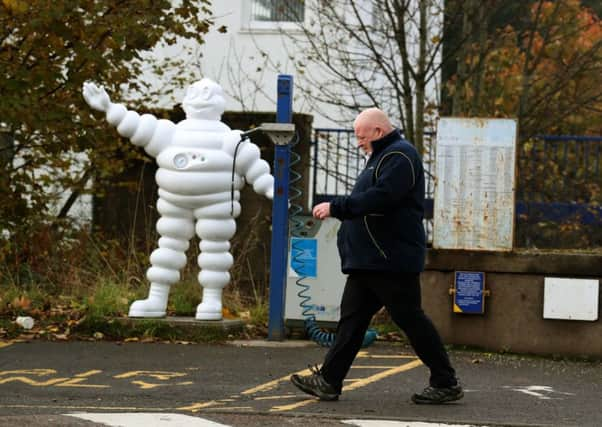Michelin must consider rescue plan for Dundee plant '“ leader comment


One worker at the Michelin plant in Dundee was so shocked on hearing it is to close – with the potential loss of 845 jobs – they concluded it must be “wind up”.
For a city that has been riding high in recent months with the opening of the V&A museum to international acclaim, this was a blast from the past, bad news on a par with the closures of watchmaker Timex in 1993 and the NCR factory in 2009, both of which employed thousands in their heyday.
Advertisement
Hide AdAdvertisement
Hide AdDespite ongoing concern about jobs at the plant, the closure announcement on Monday evening clearly took many by surprise and yesterday the Scottish Government and Unite union were scrambling to find some way to save it.
The union said it wanted to stress to the workforce that it had drawn up a “viable plan” for its future, while Finance Secretary Derek Mackay said the Government was “totally focused on trying to salvage what we can”.
But Mackay also noted bleakly that the company “does not want to revisit the decision”.
According to Michelin, the factory, which opened in 1971, is no longer economically viable in the face of increased competition from Asia. While it did not point the finger at Brexit, it seemed an obvious factor to at least one worker.
Drew Morris, a Michelin employee for 34, years, pointed out that “everything we make is imported then exported – if there are going to be problems at the borders how can that not affect us?”
Michelin’s decision may be based on simple supply-and-demand economics, rather than Brexit, but such fears are increasingly becoming a problem for the economy and will only get worse until a deal with the European Union is agreed.
The prospect of Brexit has not stopped public money being used in an attempt to shore up the plant – last year, Michelin received £4.5 million in public funding, a sizeable sum that was meant to ensure its future. And this was on top of eight other grants totalling more than £5.2m received since 2012/13.
Any free market economy is subject to powerful, sometimes unstoppable, forces, but governments can still provide a guiding hand to avoid its worst effects. That’s partly what they are elected to do.
The Scotsman only hopes Michelin can be persuaded to listen and at least to consider any proposals that would either save the plant or give it some kind of future.
